Best AI Legal Research Tools for Law Firms in 2025
By Emily Fenton
Updated April 3, 2025

Introduction: AI in Legal Research
Legal information is always changing. As an attorney or research librarian, keeping your knowledge up-to-date on certain practice areas and industries is essential in providing clients the best legal counsel – especially in highly regulated industries.
AI is transforming the way global law firms conduct research. A recent study found that the use of AI technology in conducting legal research, and drafting tasks, can significantly improve law firm efficiency. Lawyers using AI didn't just produce 10% to 28% higher quality work, compared to traditional methods, but also saw productivity gains of up to 140%.
Another study found that AI also led to drastic cost reductions, costing only a fraction of the price compared to human reviewers.
Legal and regulatory monitoring can be especially challenging when conducted on an international scale. Monitoring many different jurisdictions – some of which your firm may be unfamiliar with the legal and regulatory landscape – requires legislative tracking software to automate the monitoring and ensure efficiency.
Why Traditional Research Methods Fall Short
Traditional legal research methods include:
- Popular legal databases
- RSS feeds
- Agency newsletters
- News sources
Limited Legal Content
Legal research databases are the most common way to identify and assess legislative and regulatory materials, relevant to your focus area and jurisdiction.
But, for global firms, research databases do not provide complete international coverage.
Research databases, like WestLaw and LexisNexis, also do not provide alerts on updates that occur around, and in between, bill updates and regulatory changes.
But practice groups often need to get notified of more granular updates, beyond amended bills and regulatory updates from official government channels, such as agency forms and documents, or meetings, hearings and debate.
Research teams have to turn to alternative means of extracting this information from the web, such as RSS feeds, but these are becoming increasingly uncommon on government websites. They also lack any intelligence and filtering capabilities, resulting in too much noise.
Slow Alerts
For more time-sensitive updates, alerts from research databases tend to lag. With a premium add-on, WestLaw can send alerts as soon as 15 minutes after an update occurs. But a delay of a couple hours, or even a couple days, isn’t uncommon.
This is, in part, because research databases monitor official government channels, such as the Federal Register and the Code of Federal Regulations (CFR) – rather than government sub-sites, such as the whitehouse.gov, that publish upcoming regulatory updates, ahead of the official government channels.
Updates from agency newsletters, as well, are a common option, but there will also a delay.
When your attorney needs to know about an urgent development, as soon as it happens, these delays can seriously interfere with your firm’s quality of service.
Best AI Legal Research Tools for Law Firms
There is lots of legislative tracking software to choose from. Depending on the types of legal material you need, the jurisdictions you need to monitor and the required granularity, some tools will work better for your research needs than others.
Read on for the best AI legal research tools for law firms in 2025.
Visualping
Visualping is a versatile web tracking tool that can monitor any web page with AI. It's commonly used by law firms as a legislative and regulatory tracking software.
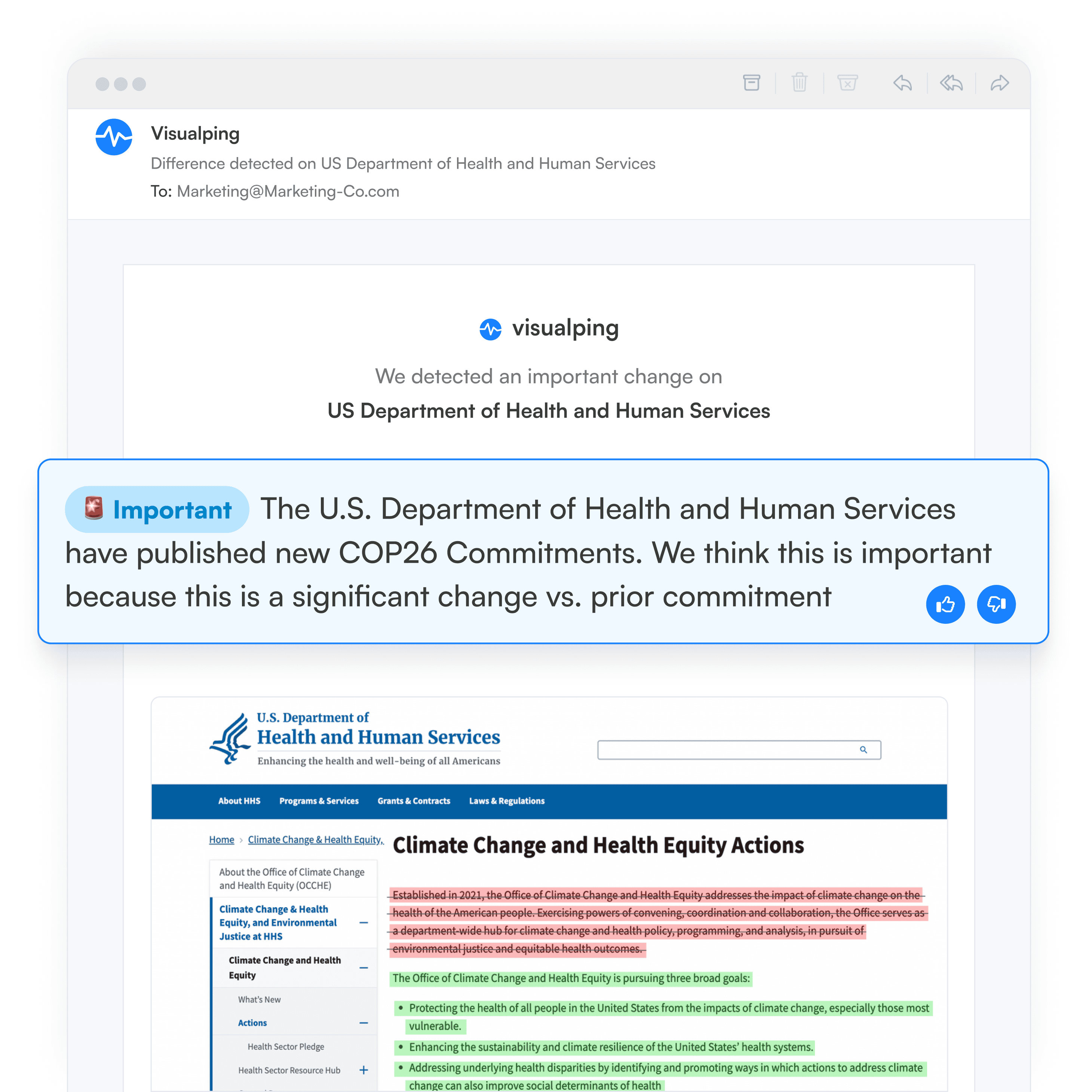
When an update occurs, you get an email alert that includes an AI-generated summary of the page change, distilled in two to three lines. The alert also includes a screenshot of the page, with the changes highlighted.
Best for
-
Teams looking to monitor any granular legislative and regulatory information that is not otherwise covered by research databases, newsletters and other means.
-
A supplementary means of extracting legal information, alongside other legal research tools, for a more efficient and effective research process.
From its database of over a hundred thousand web sources, Visualping’s team can create a customized set of web sources that match your criteria – such as by practice area, content type, topic and jurisdiction of interest.
As a website change monitoring tool, you can also add your own web sources.
Top Features
-
Limitless content scope: from its database, Visualping monitors hundreds of thousands of legislative and regulatory web sources, for any kind of legal and regulatory updates you need.
-
Real-time alerts: Get notified of a change within two minutes of it getting published on the original web source.
-
Cut through the noise with AI: Only get notified of updates that match your custom criteria, so you’re not sifting through irrelevant alerts.
Visualping by 98% of AMLaw 100, and the world’s top 25 global law firms, to monitor any legislative and regulatory changes, otherwise not available in your legal research databases.
Casetext
Casetext is a powerful legal research platform that utilizes CoCounsel, its AI-powered assistant, to enhance research efficiency. CoCounsel can analyze documents, summarize cases, and provide relevant legal arguments based on user inquiries.
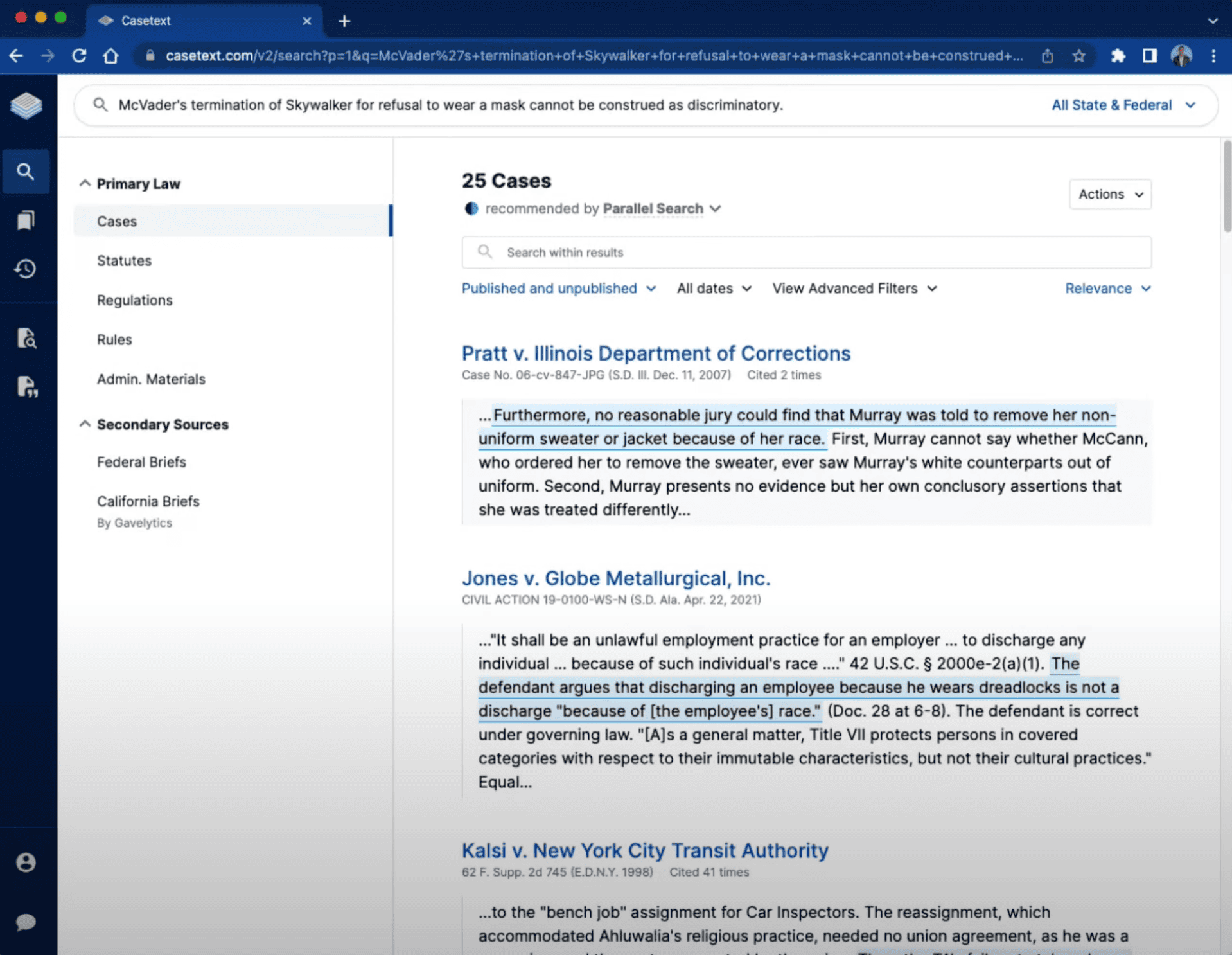
This tool offers unique features like “Smart Cite,” which allows users to verify citations in real-time, ensuring accuracy. Casetext’s extensive database of cases, statutes, and secondary sources, combined with its AI capabilities, enables lawyers to conduct thorough research quickly. By reducing the time spent on preliminary research, Casetext allows firms to dedicate more resources to client work and case strategy.
ROSS Intelligence
ROSS Intelligence leverages AI to provide answers to legal questions in real-time. Using natural language processing, ROSS allows lawyers to ask questions in plain English and receive tailored responses backed by relevant case law and statutes. This functionality not only accelerates the research process but also enhances understanding of complex legal issues.
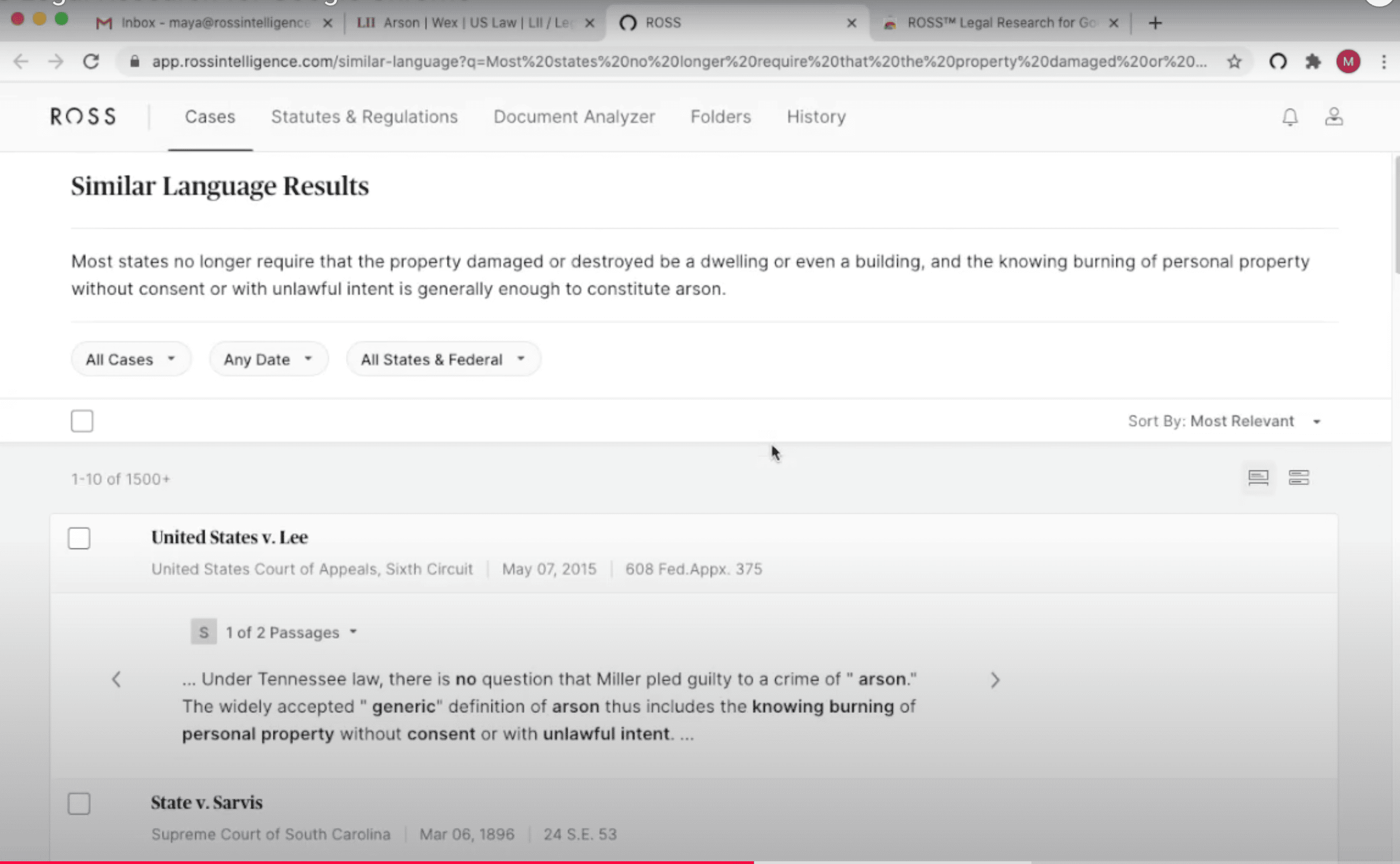
ROSS's continuous learning capabilities mean it improves over time, adapting to the specific needs of a law firm. By streamlining the initial research phase, ROSS enables attorneys to focus on applying insights rather than getting bogged down in data gathering.
Fastcase
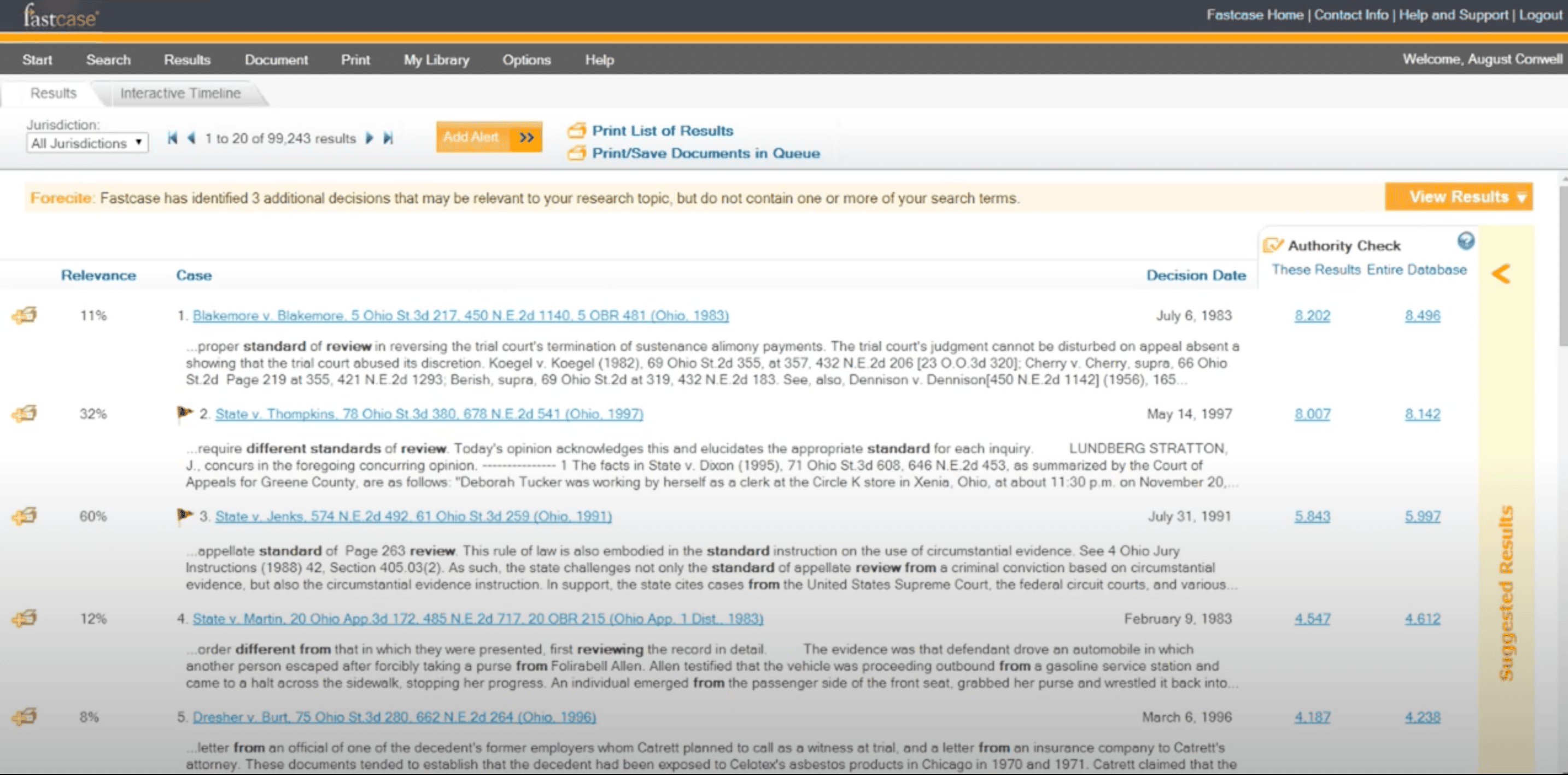
Fastcase is a cloud-based legal research platform that uses AI to help lawyers find cases and statutes quickly. Its visual search tools and “CaseMap” feature enable users to visualize case law connections, making it easier to navigate complex legal topics. Fastcase also offers a mobile app, allowing attorneys to conduct research on the go. The platform’s cost-effectiveness makes it an attractive option for smaller firms or solo practitioners. By combining traditional research methods with innovative technology, Fastcase empowers lawyers to perform thorough and efficient legal research without incurring high costs.
Judicata
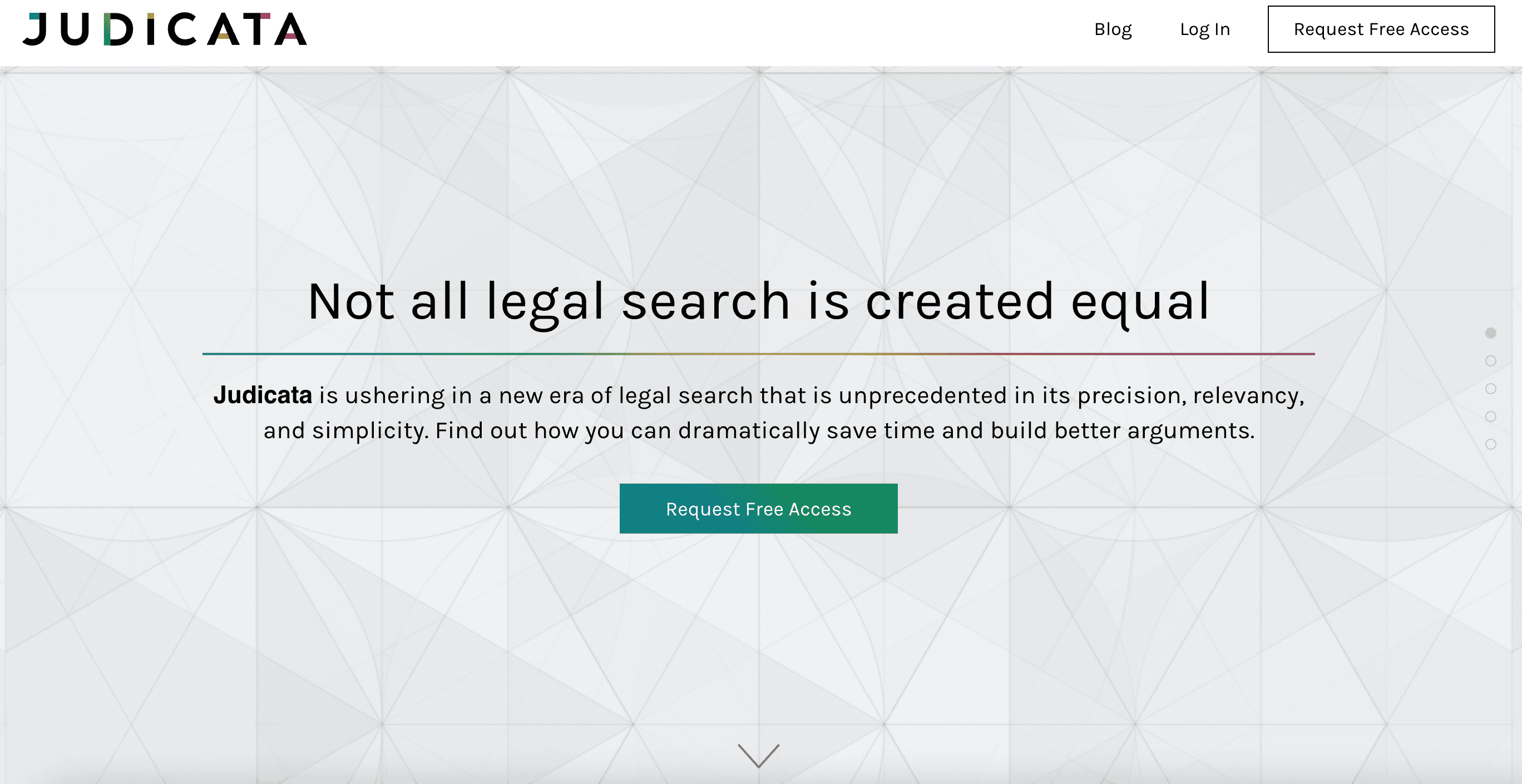
Judicata offers an AI-driven platform that focuses on case law research and analysis. Its key feature, the “Brief Builder,” helps lawyers draft briefs by providing relevant case citations and arguments based on the issues at hand. The platform’s analytics tools allow attorneys to understand case trends and outcomes, improving their ability to predict litigation results. Judicata’s focus on providing actionable insights rather than just raw data ensures that lawyers can leverage research findings effectively. By streamlining brief preparation and enhancing strategic planning, Judicata significantly boosts a law firm’s research efficiency.
Legal Robot
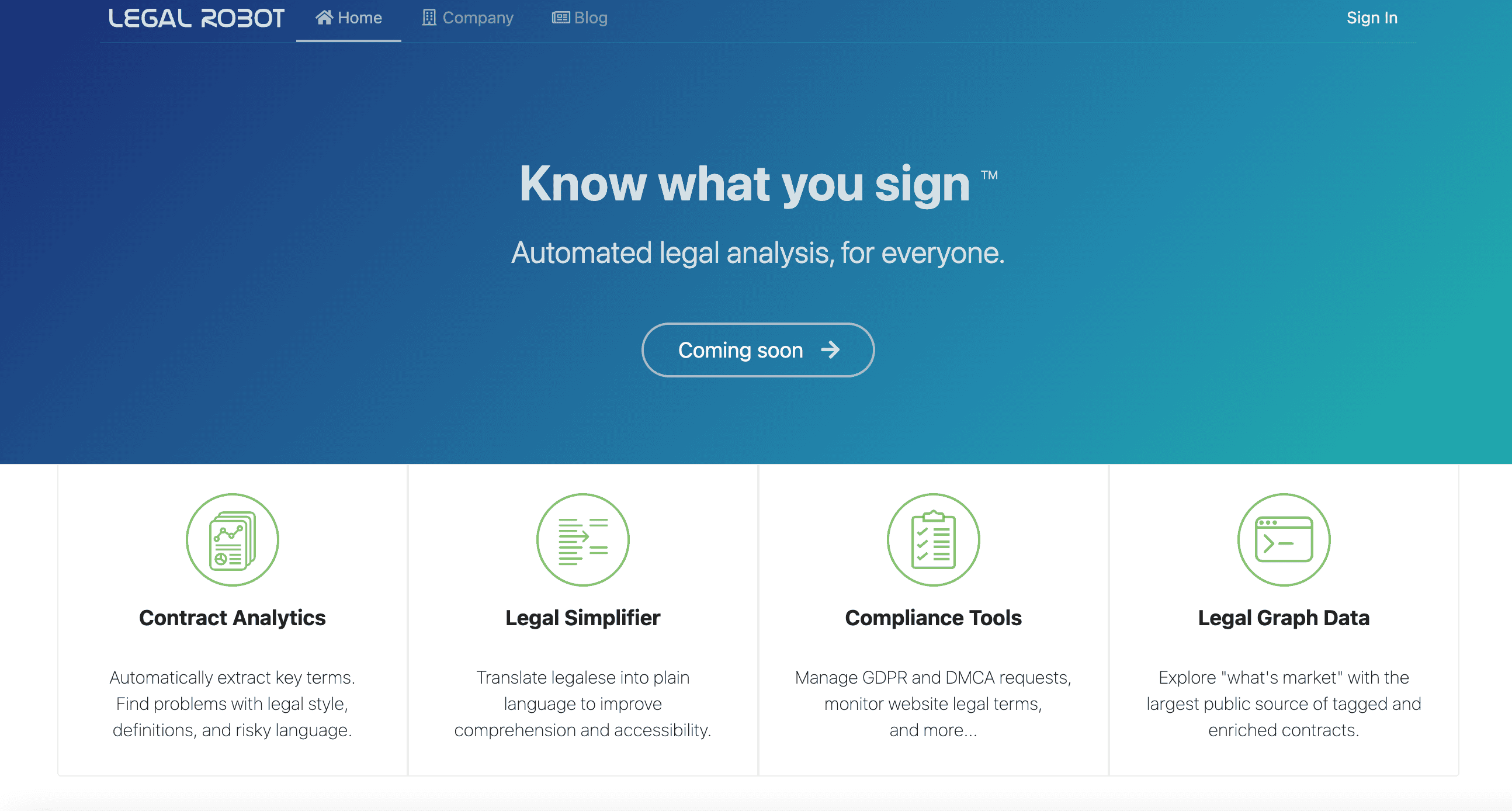
Legal Robot employs AI to analyze legal documents and ensure compliance with established legal standards. It focuses on language clarity, structure, and legal concepts, helping lawyers draft more effective documents. Legal Robot's unique ability to provide automated feedback on contracts and agreements allows attorneys to spot potential issues early in the drafting process. By enhancing document accuracy and readability, Legal Robot supplements legal research by ensuring that lawyers can produce high-quality, compliant documents without extensive manual review.
Evisort
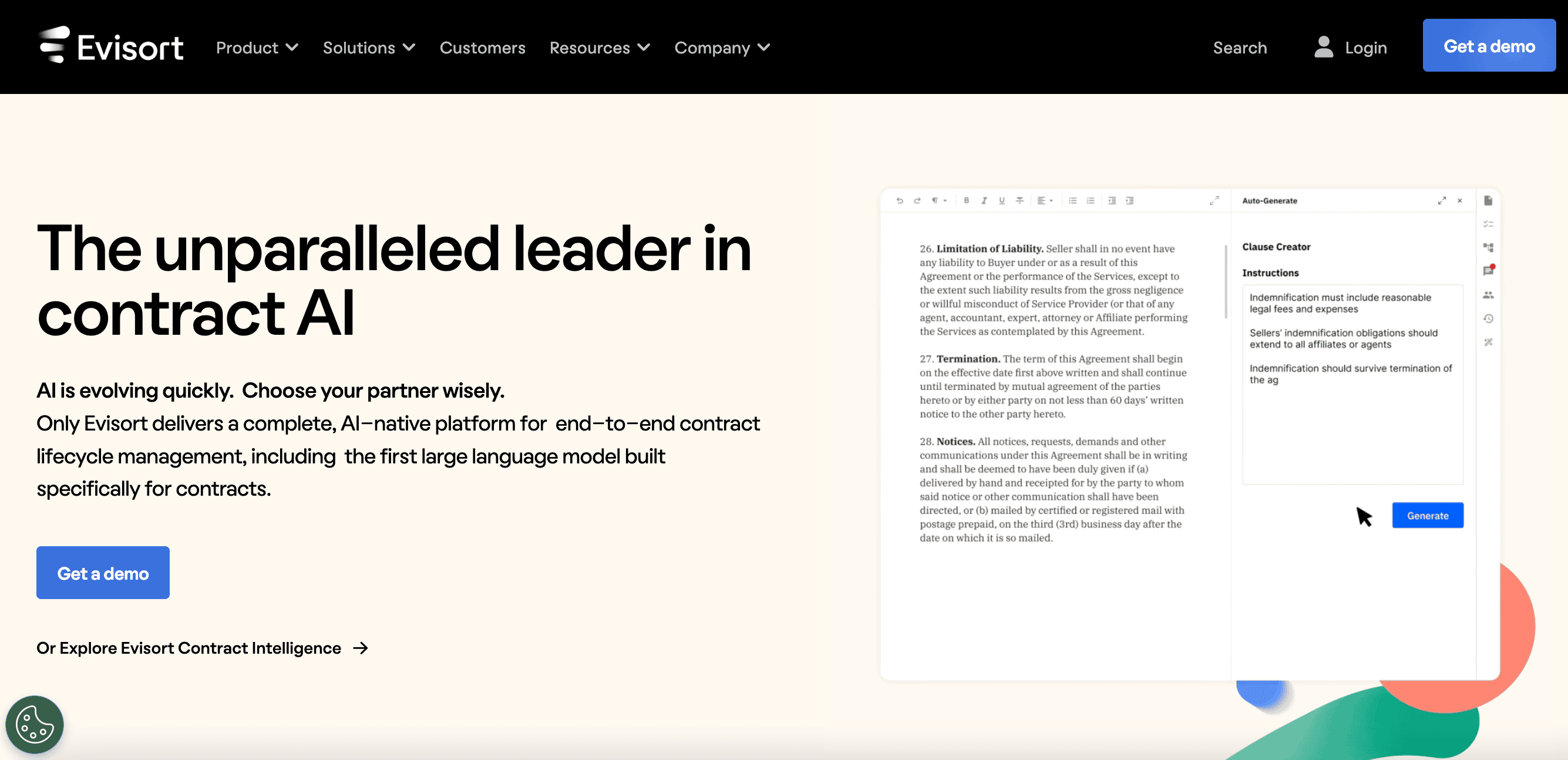
Evisort utilizes AI to streamline contract management and legal research processes. It automates the extraction of key terms and clauses from contracts, allowing lawyers to quickly assess legal documents without manual review. Evisort’s robust search capabilities enable attorneys to find relevant clauses and compare contracts across different matters, improving efficiency. By integrating contract analysis with legal research, Evisort helps lawyers make informed decisions based on data-driven insights, ultimately enhancing their practice and client service.
Everlaw
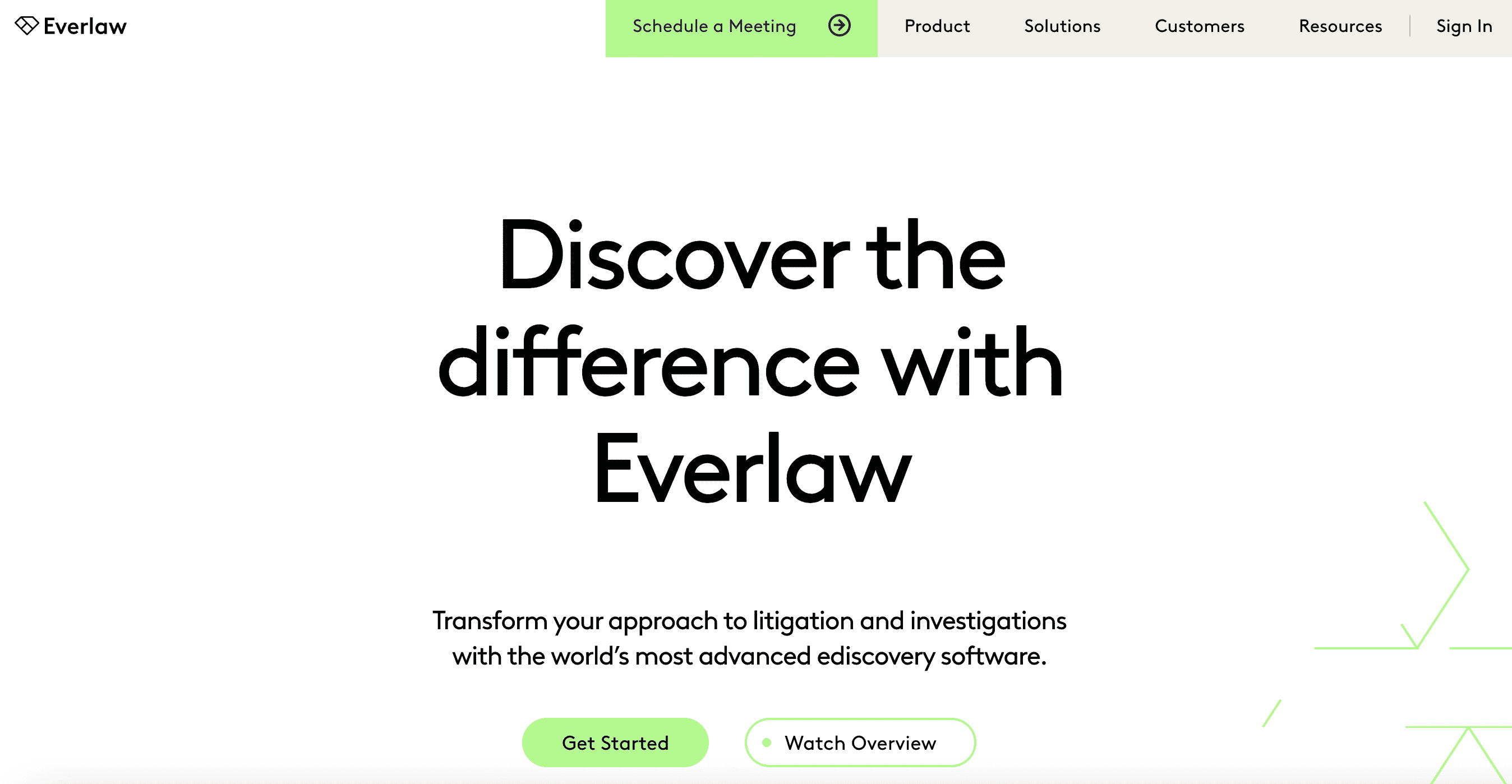
Everlaw is an innovative legal research and case management platform that incorporates AI to optimize the litigation process. Its advanced search features allow attorneys to find relevant case law, documents, and evidence efficiently. Everlaw also provides powerful collaboration tools that enable teams to work together seamlessly on research and case preparation. By automating routine tasks and enhancing document management, Everlaw allows lawyers to focus on strategy and argument development. This holistic approach to legal research not only improves efficiency but also fosters a collaborative environment for legal teams.
These tools collectively enhance legal research by reducing time spent on data retrieval, improving accuracy, and providing actionable insights, thus allowing lawyers to focus on strategic aspects of their practice.
Bloomberg Law
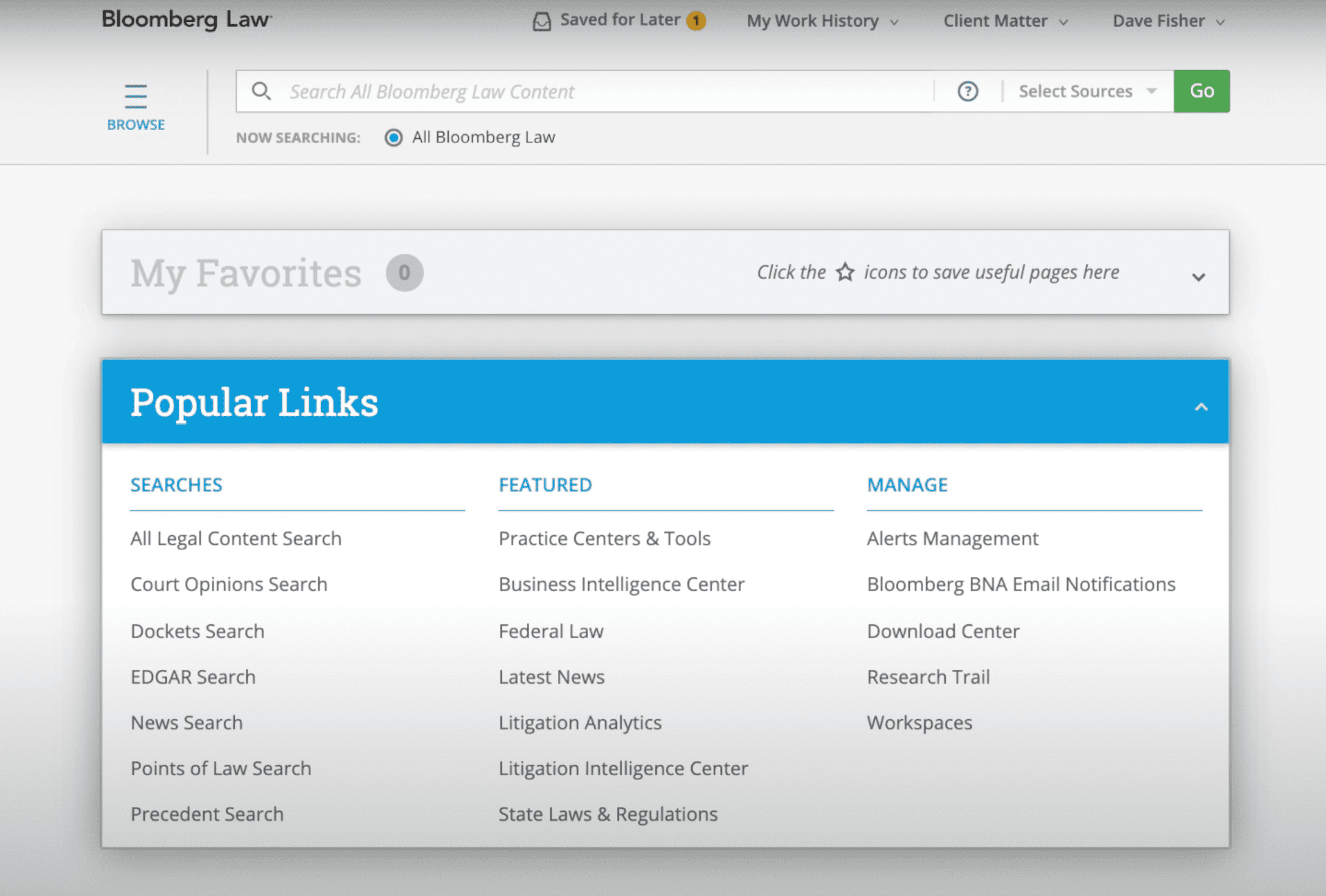
Bloomberg Law integrates AI and analytics to provide a comprehensive legal research experience. Its unique features include advanced litigation analytics, which helps attorneys understand trends in case law and judge behavior. Bloomberg Law also offers tools for tracking legal developments and a vast library of news and commentary, providing context to legal research. The platform’s customizable dashboards and alerts keep lawyers informed of relevant changes in the law, enhancing their ability to provide timely advice. By supplementing traditional research methods with real-time insights and analytics, Bloomberg Law helps lawyers stay ahead of the curve.
Final Note
In summary, AI legal research tools are not just fancy add-ons; they're crucial for staying on top of the legal information your clients need. It's high time for lawyers to embrace these innovations and enhance their workflows.
So, if you’re serious about optimizing your legal research, check out Visualping's pricing here. Or, get in touch today. Your future self (and clients) will thank you.
Get the latest legal knowledge
Sign up with Visualping for automatic legal and regulatory alerts, from any sources online.
Emily Fenton
Emily is the Product Marketing Manager at Visualping. She has a degree in English Literature and a Masters in Management. When she’s not researching and writing about all things Visualping, she loves exploring new restaurants, playing guitar and petting her cats.